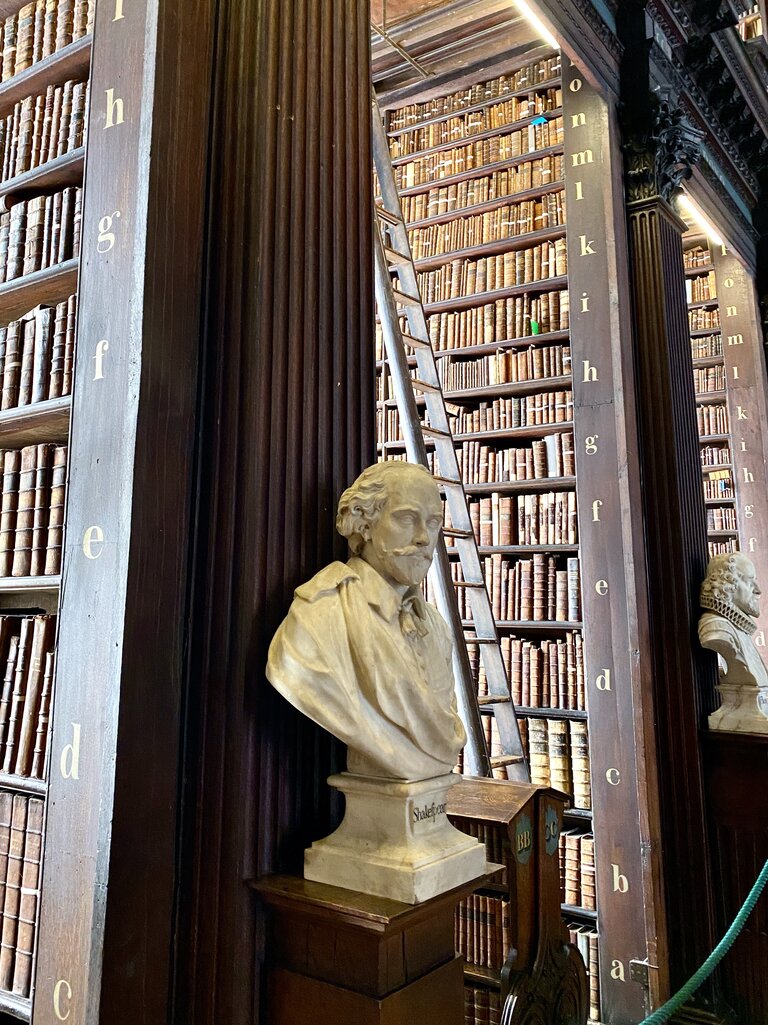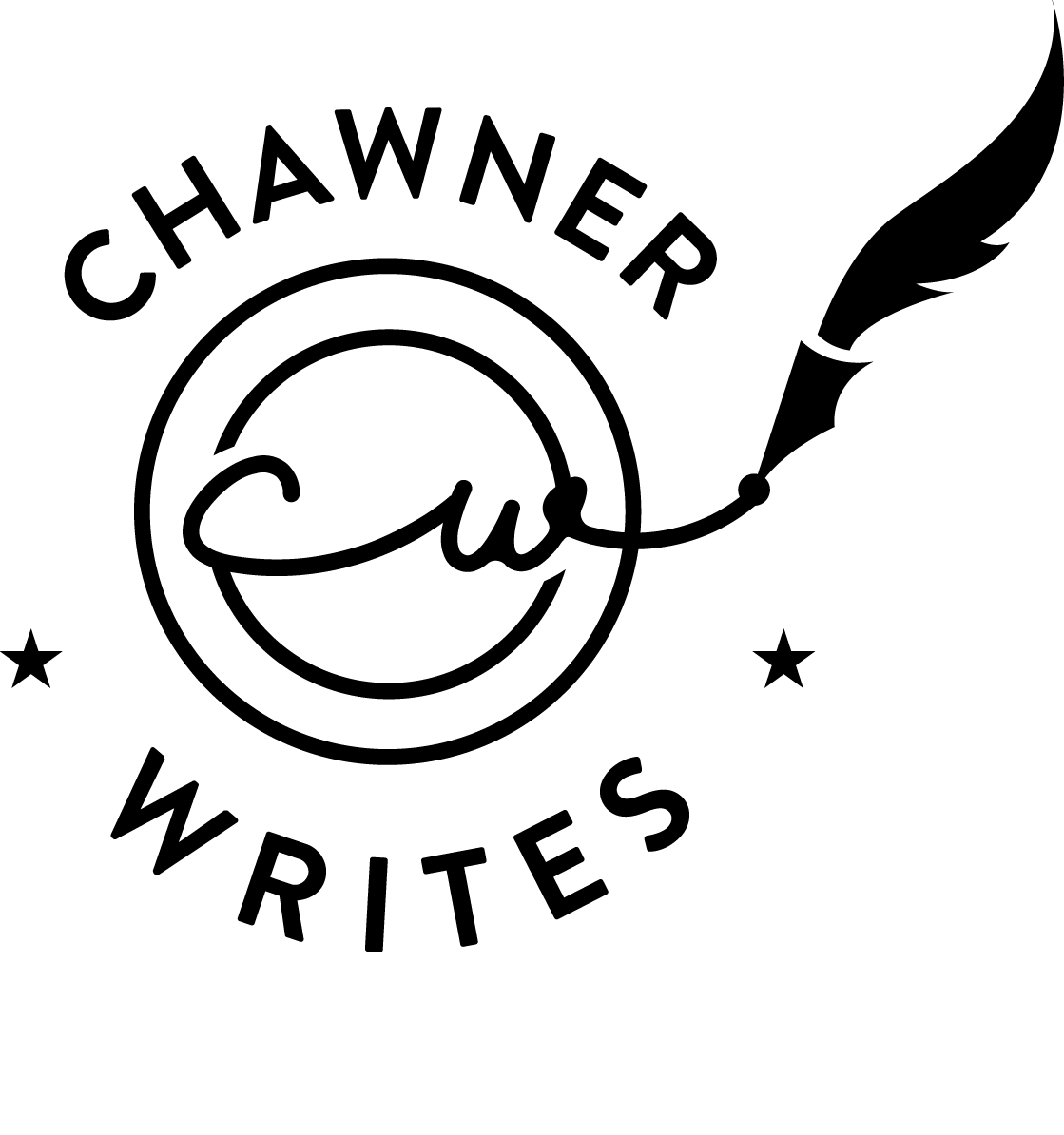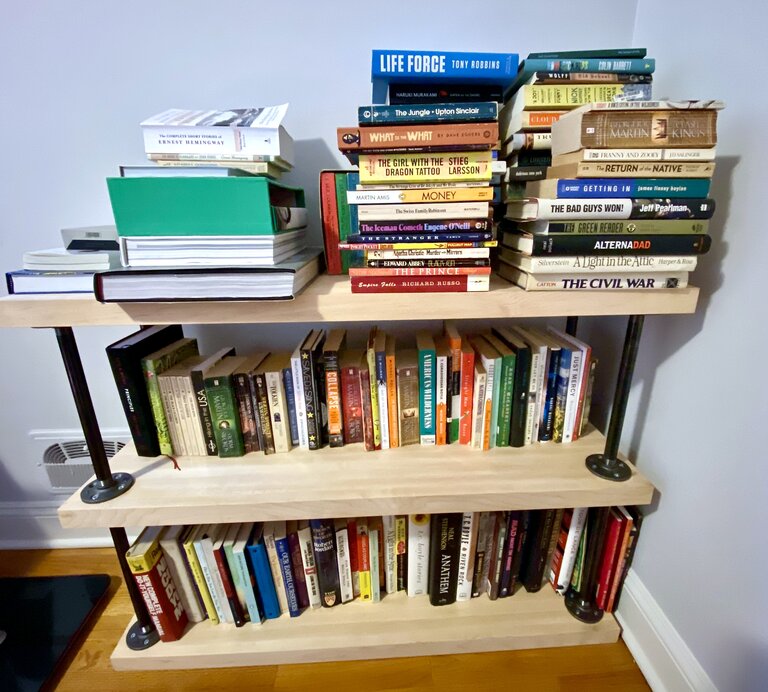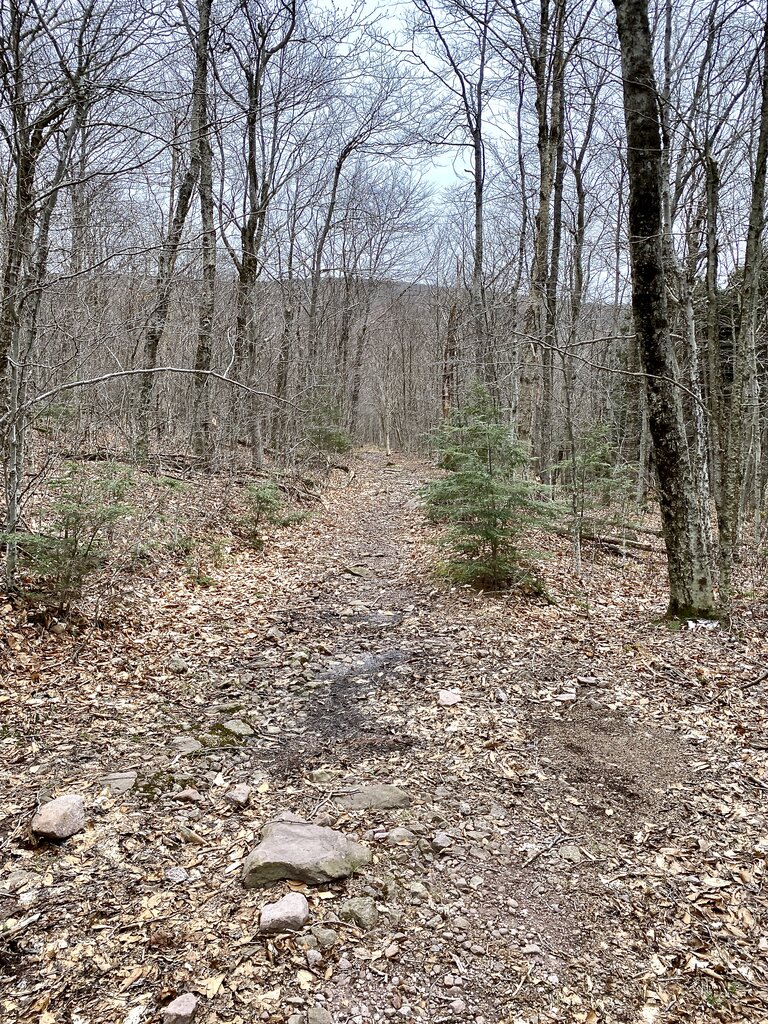
Last week I wrote about libraries, prompted by a family visit to Ireland. One of the first places we visited, right off of the plane, was Trinity College and The Long Room library.
The Long Room is most known for housing the Book of Kells, a illuminated manuscript of the Gospels by Columban monks. It’s on the old-school list of things one must see in Ireland, along with The Cliffs of Moher, the Aran Islands and Newgrange. While the history and significance of the Book of Kells is impressive, the actual book (only open to one page and protected beneath inches of glass) pales compared to the Long Room hall.

It’s something out of a movie, at least to my American eyes. They built the Long Room in 1592. The high ceilings, long rows of books, busts of famous Irish philosophers and authors, the smell of old leather and pages is the genuine attraction.
As I dodged Euro tourists trying their best not to smoke for fifteen minutes, I wondered what it would be like to write here. Not in the current set-up for tourists… replace the prime floor space with long study tables and period lamps.

Would every story be a Harry Potter rip-off? Trinity is a university with Hogwarts vibes. Stories about floating candles or the busts coming alive and commenting on the news of the day. Old books opening to mysterious pages. Secrets, ignored for hundreds of years, falling out of the dustiest book.
Or do thoughts rise with the ceiling? Pondering man, the nature of life. Reflecting on the works of ancient and modern philosophers. Really heady stuff. Does the space elevate the work?
It’s hard to imagine writing a schlocky pulp novel or trashy romance story. At a minimum, the characters should be in the library and find the last clue or piece of the puzzle in the stacks. Which begs the question, ultimately… how much does place affect the work?
Hard to answer. I’ve written in a handful of places. Trying to write at the same desk I use for work doesn’t work . My normal spot in the sunroom is the default, quiet and regular enough that I don’t think about the space anymore. Other places, like hotel rooms and house rentals… are hard to judge. I know that the first place we traveled to after quarantine was a breath of fresh air…. writing outside in a quiet forest. But when I travel, I usually have a full agenda and time constraints in the morning and writing is a secondary activity. Not sure I can judge the effect it has on the words. I’d need to go somewhere and have a leisurely morning with hours to write to test this theory.










